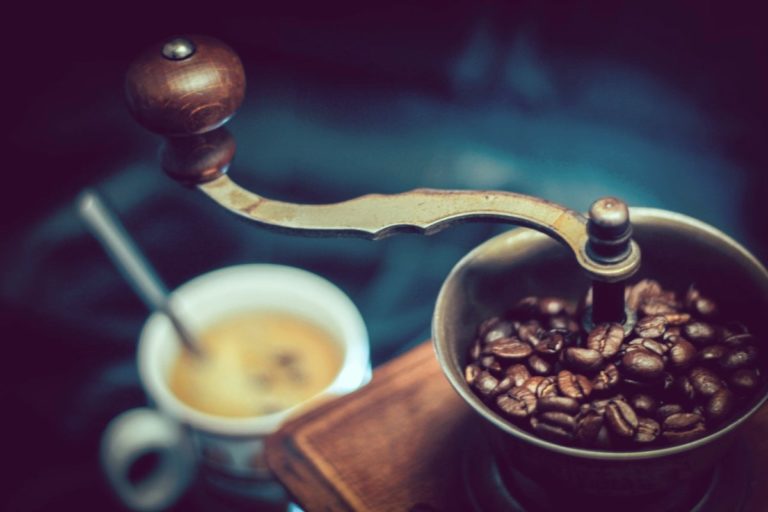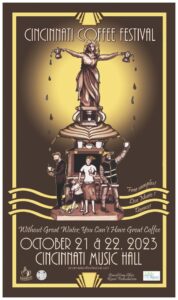Cold brew coffee facts and your questions answered.
Affiliate disclosure
This page may contain affiliate links – we may earn a small commission when you make a purchase through these links. This is at no extra cost to you.
Who invented cold brew
There are two conflicting stories regarding who invented cold brew.
When a Japanese aristocrat received coffee beans as a gift from China, he didn’t quite know what to do with them, so he thought it would be wise to preserve the beans in water.
But you see, by steeping the beans for hours—completely by accident—he had brewed the very first cold brew ever made.
The most agreed upon story is that cold brew was already happening way back in Kyoto, Japan (which was back then the capital of the country) around the 17th century.
This was a time when only Dutch traders were allowed to enter the country.
The Dutch learned it from the Japanese, and then went around the world spreading it as they went.
This would explain why cold brew and cold coffee in general is particularly popular in Asia, as it reached those countries first.
Where is nitro cold brew coffee from?
Nitro cold brew is one of the most popular types of cold brew there is.
It turns regular cold brew into a frothy drink that resembles an artisanal beer.
Where it comes from is disputed, though.
While there are many stories circulating around and plenty of people wanting to take credit for its invention, the truth is that it is very much unclear where it originated.
One thing is for sure: it is an American invention, as all of the claims come from this country.
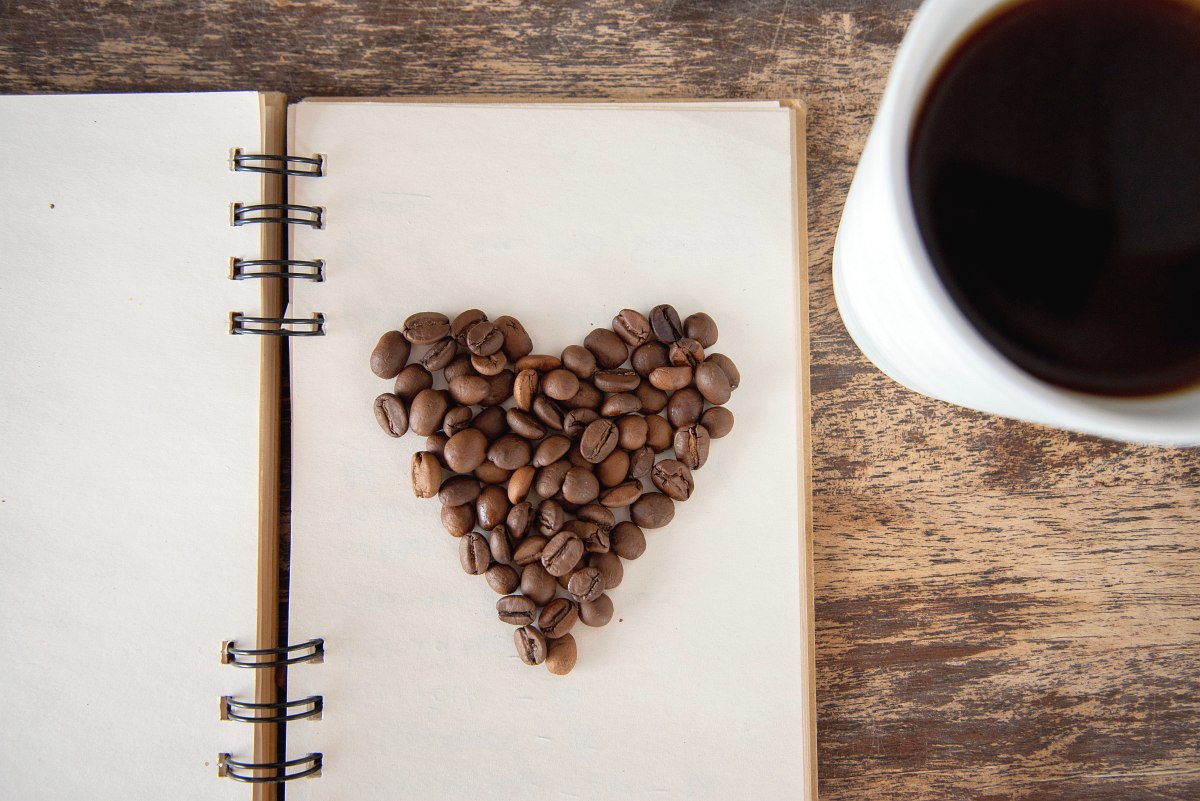
How does cold brew coffee work?
It’s not rocket science.
In fact, cold brew coffee is one of the easiest to brew of all.
You don’t need fancy coffee makers and you don’t even need fire and a kettle because it doesn’t use hot water.
All you need is a jar, coffee, and water. Room temperature or cold water; doesn’t matter.
By steeping coarse grind coffee in water for a time period of at least eight hours and up to twenty-four hours, you get cold brew coffee.
It’s as simple as that!
Where to store cold brew coffee?
Since cold brew doesn’t lose flavor or aroma by being in the fridge like other types of coffee, the fridge is the best place for it.
It can keep for a week or more while preserving its flavor in full.
Any longer than that and you’ll be compromising the flavor, however. And don’t even think about freezing your cold brew, as this can mess with the flavor and what little aroma it still has.
The only acceptable instance of freezing cold brew is for making coffee ice cubes, which can be used for making all sorts of coffee beverages.
What makes cold brew coffee different from regular?
The main differentiating factor is that cold brew is brewed using cold water (or room temperature water).
There are certain chemical processes that don’t take place, therefore making cold brew unique in its own way.
A lot of the caffeine and coffee oils in the coffee grounds aren’t fully extracted when using cold water, so cold brew varies in the content of both of these.
Coffee oils are responsible for some flavors and most of the aroma, which is why cold brew doesn’t have the same aroma as regular coffee.
Cold brew coffee and caffeine
As for the caffeine, it is unclear whether cold brew has less or more caffeine.
The absence of hot water suggests less caffeine, but the longer steeping times, more.
It is confusing and there aren’t definitive studies nor conclusions about this.
Many popular cold brew products—canned cold brew, in particular—are also made using robusta coffee, which has around twice the amount of caffeine as regular coffee.
This would easily explain why cold brew coffee is perceived to be more caffeinated than regular coffee.
The honest answer, as unsatisfying as it is, is that we can’t really be sure except for some commercial products out there.
But the homemade, good stuff? No idea.
Cold brew coffee versus iced coffee
There seems to be some reasonable confusion around these two.
What makes cold brew different from iced coffee?
They are both cold coffee, right?
Well, not technically.
As we explained before, cold brew is that which is brewed using either cold or room temperature water. That is what makes it unique.
Iced coffee, on the other hand, is regular coffee that has been brewed using hot water, no matter the brewing method. Only then it is iced, making it cold.
So while one is a type of coffee and a brewing method the other, iced coffee, is more of a type of beverage.
In terms of flavor and aroma, they are abysmally different with iced coffee having a more acidic and slightly more bitter flavor, as well as more aroma.
Cold brew is less acidic, less bitter and has little aroma.
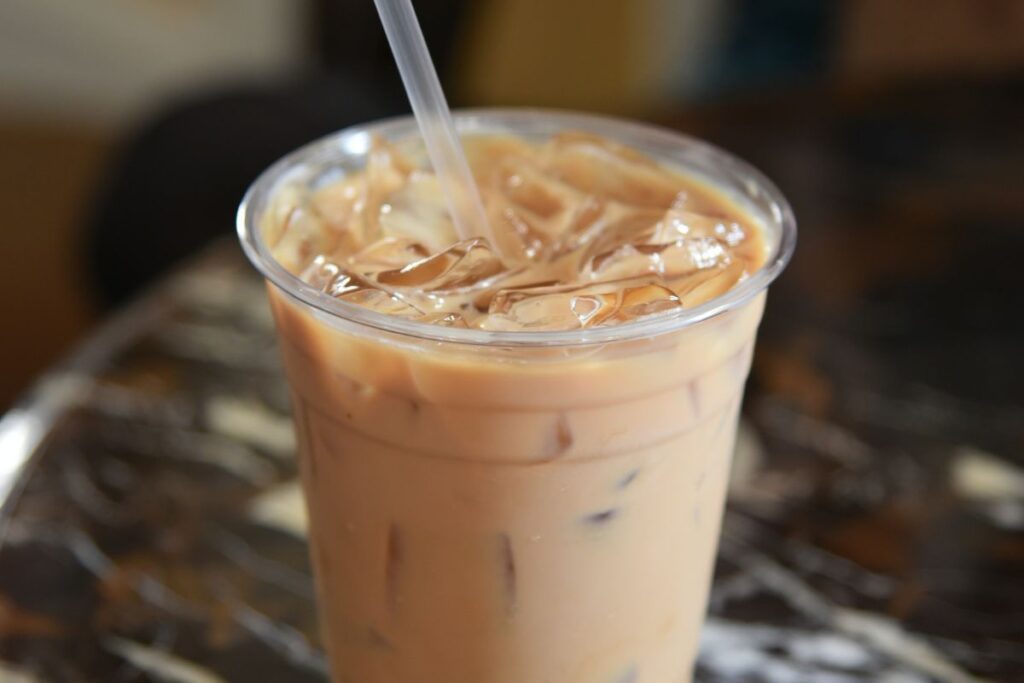
Cold brew coffee vs espresso
Espresso is one of a kind; inimitable.
And yet if you were to try and compare it to any brewing method, cold brew is surprisingly the one that resembles it the most.
Why?
Well, think about what it is that makes espresso so unique.
It’s because it’s so concentrated.
The ratio of coffee to water is very small; about 1:2 or even 1:1, whereas regular coffee is anywhere from 1:10 and up.
Cold brew can go as low as 1:1, though.
It is the only brewing method where this is actually doable besides espresso.
The standard for cold brew is either 1:2 or 1:3, and 1:1 makes a coffee that is syrupy and so concentrated that it frankly looks like espresso.
But because the way they are brewed is so different, they can’t really be compared when it comes to flavor.
It does make cold brew the perfect beverage for preparing espresso-based drinks without using actual espresso like lattes, cappuccinos, and so on.
Should cold brew coffee be refrigerated?
Yes! Cold brew, like anything else, can go bad. It takes quite a while, though.
Actually, the reason why we want to refrigerate cold brew is so it doesn’t lose its flavor—exposure to heat can make it lose its flavor and aroma rather quickly.
Coffee’s also good at absorbing other odors, so that makes it vulnerable.
Store your cold brew in the fridge, sealed, to keep it as fresh as possible.
Is cold brew coffee stronger?
It depends! But it is stronger overall, yes.
This is because of what we talked about earlier regarding the coffee to water ratio, if you remember.
That means that little water is used to make cold brew.
If less water is used than normal, it follows that the beverage itself will have more flavor.
Not every brewing method can pull this off, though.
Simply adding less water (or more coffee) would ruin your coffee’s taste.
It is thanks to the low water temperature and the prolonged steeping process that we are able to use little water, thus making a stronger coffee than usual.
The longer you steep it, the stronger it is.
So it can definitely be stronger than regular coffee!
Is cold brew coffee better for you?
The definite answer is not clear yet, but there are some areas in which cold brew seems to be better than regular coffee.
Like acidity, for example, which we talked about earlier.
Acidity in cold brew is very low; cold brew’s pH is higher than regular coffee, meaning it is less acidic than regular coffee.
It isn’t simply a matter of taste, but also on a technical level, cold brew is less acidic.
Acidity in coffee is a real issue, and not just because some people just don’t like sourness; it can cause stomach problems.
In people who suffer from chronic acidity, burns can appear on the stomach walls as well as in the esophagus. These can make it painful to eat or drink.
Many people are ordered to stay away from coffee (and other acidic beverages) because of this particular problem.
Cold brew can be a great alternative because it has all the flavor and perks (caffeine) of coffee without so much acidity.
Can I cold brew coffee in a French press?
Sure you can! One of the greatest things about cold brew is that it doesn’t actually need any specialized equipment, like espresso, drip coffee, pour over, etc.
Cold brew is a brewing method that just needs to steep coffee ground in water.
No need for fancy equipment.
That also means that most coffee equipment is suitable for making cold brew coffee; the French press most of all.
All you need to make coffee in a French press is follow the steps as usual: pour coffee in and then, when pouring water, use cold water.
Then place the lid on, press the plunger down, and wait from eight to twenty-four hours for your coffee to brew.
Of course, you’ll need to adjust the coffee to water ratio.
Ideally, you would use as much as ten times the amount of coffee you use in a French press.
The usual ratio for a French press is 1:14; cold brew goes by 1:2.
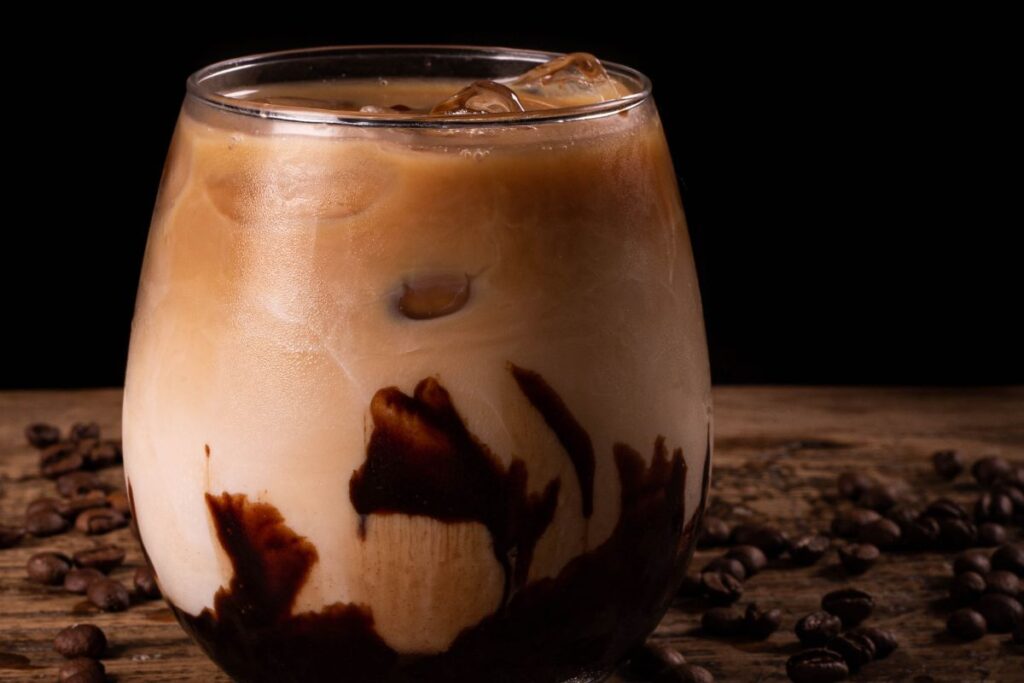
What is cold brew coffee maker?
Since we’re on the topic of using a French press to make cold brew coffee, it’s also true that there are cold brew coffee makers out there.
These do a great job at taking this brewing method that doesn’t really require specialized tools and make it even better and/or more convenient.
Most cold brew coffee makers aim for convenience.
They are little less than French press shaped receptacles for you to brew your coffee in.
Some cold brew coffee makers, though, can be a real asset.
There’s a special type of filter called a laser-cut metal mesh filter that does a phenomenal job at filtering out sediment and makes an extraordinarily clean brew and tastes great.
Can cold brew coffee be heated up?
This is a tricky question.
On the one hand, everybody likes hot coffee.
But here’s the thing: cold brew isn’t regular coffee.
A lot of the receptors involved in tasting something are located at the very back of the throat and only really activate when smelling something. This is why they say aroma is more than half of the flavor.
This is very true when talking about coffee.
Coffee without its characteristic aroma loses a lot of its power.
Losing your sense of smell, it’s actually quite well known, makes for a decreased sense of taste.
You can ask anyone that caught Covid; most of them will tell you just how sad eating their favorite food was when they couldn’t smell it!
So, yes, cold brew can be heated up.
It doesn’t mean that it should, and it is highly recommended that you stick to drinking it cold or using it only in cold beverages like iced frappuccinos, and so on.
Why is cold brew coffee so expensive?
That is a good question.
Cold brew, as we talked about earlier, has a coffee to water ratio that is just like espresso.
That is, about one gram of coffee per two grams of water.
When drinking espresso, that’s not really a problem.
We’re all used to the tiny cup of espresso that’s gone in a couple of sips.
But cold brew?
It’s not really something that you can enjoy in a few sips.
Cold brew is served in bigger cups, cans; it’s usually much more than just one espresso.
The thing is, though, that it takes a lot of ground coffee to make just one cup of cold brew: that’s the main reason why cold brew seems so expensive.
Think that to make one liter of cold brew, you need half a kg of ground coffee.
That’s what a regular coffee bag weighs!
You can try and use a different coffee ratio if you make this at home, though; it’s okay to use a little bit more water.
Photos by Tom, Ksaver, Guto Macedo and Triin

